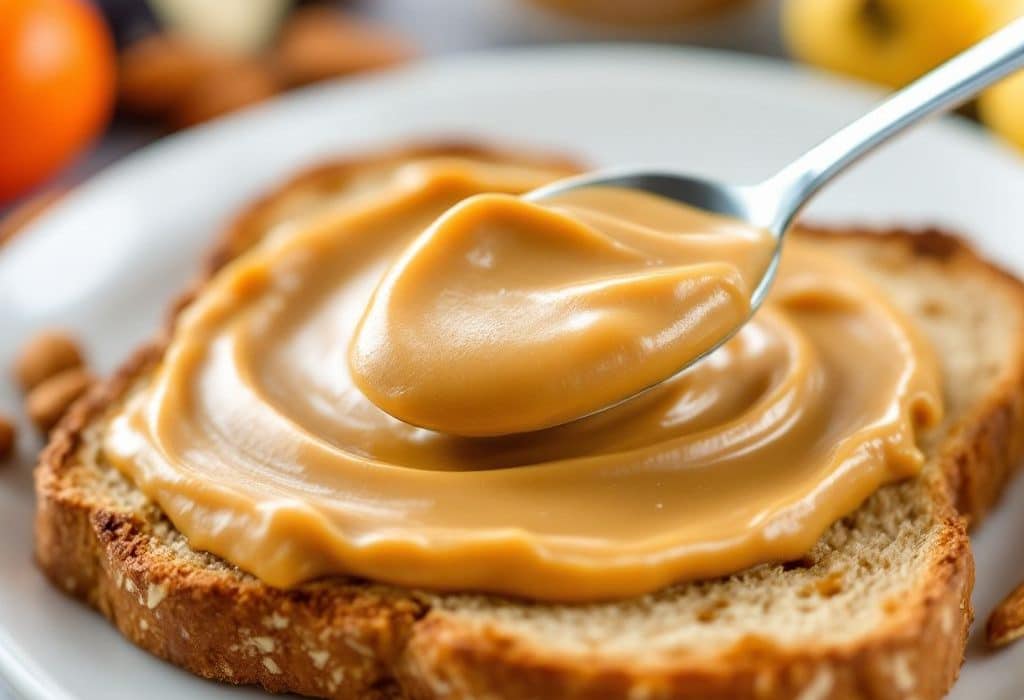Hey there, fellow nut butter enthusiast! So you’re standing in the middle of the grocery store aisle, staring at an overwhelming selection of nut butters. Sound familiar? Seriously, peanut butter has always been a classic, right? But lately, almond butter has been making quite the statement. It’s like the new kid on the block and honestly, I think it’s got a lot going for it. Let’s dive into why almond butter deserves a spot in your pantry and how it’s pretty much a game changer.
Why Almond Butter?
First off, let’s tackle the why. Why almond butter, out of all the options? Well, it’s not just about switching things up. Almond butter brings some serious health benefits to the table. For starters, it’s packed with nutrients that you definitely don’t want to miss out on. Think heart health, glowing skin, and an overall health boost. Trust me, once you give almond butter a proper shot, you’ll be incorporating it into more than just your morning toast.
Nutrient Powerhouse
Leafy greens aren’t the only goodies that are loaded with nutrients. Almond butter is rather underrated in this department. It’s rich in healthy fats, specifically monounsaturated fats, which are the kind you want on your side. These good fats can help lower bad cholesterol, aka LDL, and raise the good stuff – HDL cholesterol. Essentially, it’s like giving your heart a big ol’ hug.
If you’re into counting macros, almond butter brings a solid protein game too – approximately 7 grams per 2 tablespoons. And that same serving size blesses you with around 3.5 grams of fiber, which keeps digestion right on track. More fiber means feeling fuller longer, so your classroom or office snack needs might be minimized with good almond butter on your breaky.
The Skin Factor

You want healthy, glowing skin? Who doesn’t! Here’s where almond butter really shines. It’s jam-packed with Vitamin E, an antioxidant that’s fantastic for your skin. Think of Vitamin E as your skin’s BFF. It helps defend your cells from oxidative stress and supports your overall skin health. So when you add almond butter to your routine – whether that’s breakfast, snack time, or even in a smoothie – you’re sneaking in some solid self-care. You’re not just nourishing your inside, you’re radiating it on the outside too.
Almond Butter Vs. Peanut Butter: The Showdown
What makes almond butter the preferred choice over its closely related friend, peanut butter? Let’s unpack this with a straightforward comparison. Let’s be clear, I’m not knocking peanut butter. I love it through and through. But here’s a No-B.S. point of view to help you decide which one might work best based on your lifestyle.
**Nutritional Comparison**
| Nutrient | Almond Butter (per 2 tbsp) | Peanut Butter (per 2 tbsp) |
|---|---|---|
| Calories | ~200 | ~188 |
| Protein | 7g | 8g |
| Fat | 18g | 16g |
| Fiber | 3.5g | 2.5g |
| Vitamin E | 26% of the RDI | 12% of the RDI |
Oddly, the calorie count is slightly higher with almond butter, though for many the trade-off in vitamins and minerals is entirely worth it. More vitamin E in almond butter gives a substantial edge over the latter for those eyeing skincare benefits, while also fulfilling other nutritional needs effectively.
Almond Butter: A Staple in Natural Skincare
Alright, circling back to almond skin benefits – incorporating almond butter can even become part of your beauty routine. Not like, “spread it on your face,” but more from the inside-out effect. When your diet is packed with necessary vitamins and minerals, your skin will eventually reflect that.

But let’s indulge in a little side note – ever considered using almond oil, a cousin to almond butter, in your skincare routine? It’s brilliant for moisturizing and can help soothe dry skin. Though, stick to eating almond butter and using oils with Vitamin E topically for skin feels, capisce?
How to Enjoy Almond Butter
Feeling inspired to give almond butter a try? Great choice. Here’s a couple of solid suggestions.
- Morning Boost: Slap some on whole-grain toast with sliced bananas. Seriously, it tastes like a dessert for breakfast. Plus, the potassium from bananas is a nice bonus.
- Smooth Operator: Add a spoonful into your morning smoothie. Bam – you’ve just pumped up your drink both nutritionally and flavor-wise. Pair it with some spinach for an added nutritional rainbow.
- Apple Dipper: Almond butter pairs fantastic with apple slices. Simple and filling – basically the perfect midday snack.
- Oat Overload: Stir it into your oatmeal for added creaminess and a burst of flavor. Bet you won’t look at oatmeal the same way again once almond butter joins the party.
Let’s Tackle Some Potential Pitfalls

- Too Much of a Good Thing: As healthy as almond butter can be, it’s also calorie-rich. Moderation is key. You don’t need to eat half the jar in one go. I know, it’s tempting.
- Storage Skills: Keep it fresh by storing it in the fridge, especially once opened. Food safety first, always.
Almond Butter as Part of a Balanced Diet
As chatty as almond butter and I have been here, remember that it’s best when complemented by other food groups within a balanced diet. Pair it with fruits, veggies, proteins, and carbs to keep everything moving smoothly.
Wrapping it Up
So, next time you’re staring at the different nut butters on the shelves, give almond butter a chance. It’s the heart-healthy, skin-loving champion you didn’t know you were missing. Whether slathered on toast or starring in your favorite smoothie, it’s a worthwhile addition to nearly any meal. You’ll not only enjoy its flavor but also benefit from its notable nutritional profile.
Incorporating almond butter into your life checks multiple boxes: nutritious, delicious, and oh so versatile. Isn’t that the kind of fuel you want for your body? Give it a try and notice your skin, heart, and overall wellness potentially get an upgrade. And hey, if you fall in love with almond butter, you’re certainly not alone. Trust me, I’d put it in everything if I could!
Frequently Asked Questions
What are the benefits of using natural skincare products?
Natural skincare products offer several benefits, including being gentler on the skin, reducing the risk of irritation and dryness, and providing nourishment with nutrient-rich and antioxidant ingredients. They are free from harsh chemicals, artificial colors, and fragrances, making them suitable for sensitive skin. Additionally, natural skincare products can help prevent premature aging and are more environmentally friendly[1][3][5).
How do natural skincare products differ from traditional skincare products?
Natural skincare products are primarily composed of ingredients derived from plants, animals, or minerals, with minimal or no chemical or synthetic substances. In contrast, traditional skincare products often contain harsh chemicals, preservatives, and artificial ingredients that can strip the skin of its natural oils and cause irritation. Natural products adhere to stricter standards, such as those in the European Union, where products must contain at least 95% natural ingredients to be labeled as natural[5).
What natural ingredients are commonly used in natural skincare products?
Common natural ingredients in skincare include coconut oil, olive oil, aloe vera, green tea, chamomile, argan oil, shea butter, and honey. These ingredients are rich in vitamins, antioxidants, and essential nutrients that promote skin health, reduce oxidative stress, and combat signs of aging. They also offer moisturizing, soothing, and protective qualities that are beneficial for various skin types and concerns[1][3][5).
Are natural skincare products suitable for all skin types, including sensitive skin?
Yes, natural skincare products are generally suitable for all skin types, including sensitive skin. They are formulated to be gentle and non-irritating, avoiding harsh chemicals and synthetic ingredients that can cause skin reactions. Natural ingredients like aloe vera, chamomile, and shea butter are particularly beneficial for sensitive skin due to their soothing and moisturizing properties[1][3][5).
References

